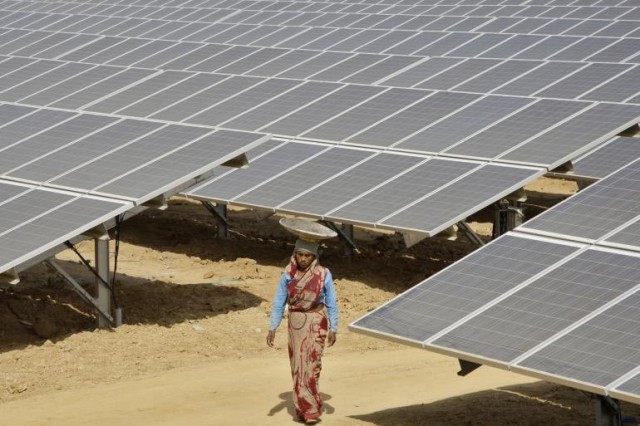This is a powerful piece on the cost of environmental extremism to the world’s poor.
The soaring [food] prices were actually exacerbated (as the Food and Agriculture Organisation of the UN confirmed) by the diversion of much of the world’s farmland into making motor fuel, in the form of ethanol and biodiesel, for the rich to salve their green consciences. Climate policies were probably a greater contributor to the Arab Spring than climate change itself.
The use of ethanol in motor fuels is an irrational response to “green propaganda. The energy density of biofuel, as ethanol additives are called, is low resulting in the use of more and more ethanol and less and less arable land for food.
Without abundant fuel and power, prosperity is impossible: workers cannot amplify their productivity, doctors cannot preserve vaccines, students cannot learn after dark, goods cannot get to market. Nearly 700 million Africans rely mainly on wood or dung to cook and heat with, and 600 million have no access to electric light. Britain with 60 million people has nearly as much electricity-generating capacity as the whole of sub-Saharan Africa, minus South Africa, with 800 million.
South Africa is quickly destroying its electricity potential with idiotic racist policies.
Just to get sub-Saharan electricity consumption up to the levels of South Africa or Bulgaria would mean adding about 1,000 gigawatts of capacity, the installation of which would cost at least £1 trillion. Yet the greens want Africans to hold back on the cheapest form of power: fossil fuels. In 2013 Ed Davey, the energy secretary, announced that British taxpayers will no longer fund coal-fired power stations in developing countries, and that he would put pressure on development banks to ensure that their funding policies rule out coal. (I declare a commercial interest in coal in Northumberland.)
In the same year the US passed a bill prohibiting the Overseas Private Investment Corporation — a federal agency responsible for underwriting American companies that invest in developing countries — from investing in energy projects that involve fossil fuels.
This crazy policy is akin to the practice of some vegetarians trying to keep their pet dogs vegetarian.
Lunacy may be contagious but, hopefully, does not cross species barriers. Looking at several of these vegetarian sites, they all seem to be written by females.
The weird behavior of leftist western governments has opened a whole new opportunity for China to replace the west in these developing countries.
Meanwhile, China’s new Asian Infrastructure Investment Bank, is stepping in as the Americans and Europeans step back. Its willingness to fund coal projects is one of the reasons other Asian countries are rushing to join the project, to the irritation of Washington. The Australian government is joining forces with Japan to push for the construction of “clean coal plants in the developing world — power stations that burn coal more efficiently.”
At least Australia has a government that has not lost its senses.
There is even some evidence that increasing CO2 may be helping parts of Africa.
So far, the African climate has not changed significantly, anyway: dangerous weather is no more frequent and a recent analysis by Euan Mearns found that temperatures in southern Africa, outside cities, are no higher than in the 1930s. (He also found evidence of “shocking, mass manipulation of temperature records”, a charge that is now to be investigated on a global level by a panel chaired by Professor Terence Kealey.)
Meanwhile, satellite images show a spectacular and beneficial greening all across the Sahel, caused partly by better land management and partly by higher carbon dioxide levels in the air, which encourage plant growth. A German study projects that this may continue for most of the current century.
The rich, as we see in San Francisco and New York City, can afford silly policies that the poor cannot.
The Africans seem to have it figured out even if the western left doesn’t.
Donald Kaberuka, president of the African Development Bank, as saying that is hypocritical for western governments, made rich by fossil fuels, “to say to African countries, ‘You cannot develop dams, you cannot develop coal, just rely on these very expensive renewables’. African countries will not listen.”
Tags: economics, energy policy, politics, science

Another excellent post, Dr K.
Over 20 years ago when the ANC came to power in South Africa, they closed several power plants in the belief the country had too much generating capacity. That policy has come back to haunt us as we’re now experiencing up to 3 “planned” power cuts a day. Three large coal-burning power plants are being constructed, but the economic fallout of the blackouts has been catastrophic costing our economy up to $6.8 billion a month. http://www.cnbcafrica.com/news/southern-africa/2015/03/25/south-africa-power-economy-eskom/
The African National Congress holds a 25% share in the company building the power stations and stands to make billions in profit. Not bad for a political party which regularly rails against the evils of capitalism.
Midwestern farmers make enough money from ethanol some plant corn on corn year after year. Using more synthetics to screw whats left of the soil. Someone needs to be jailed.